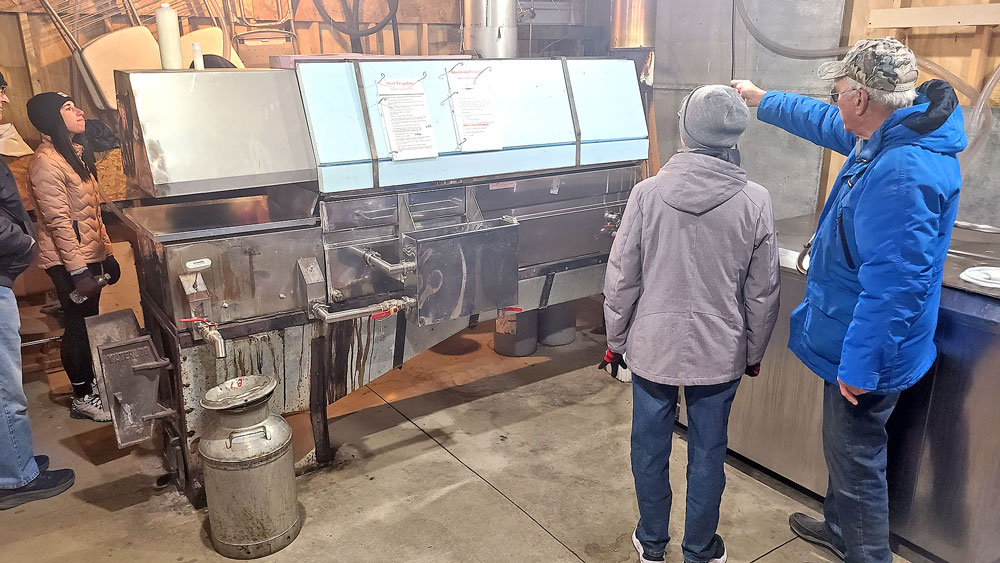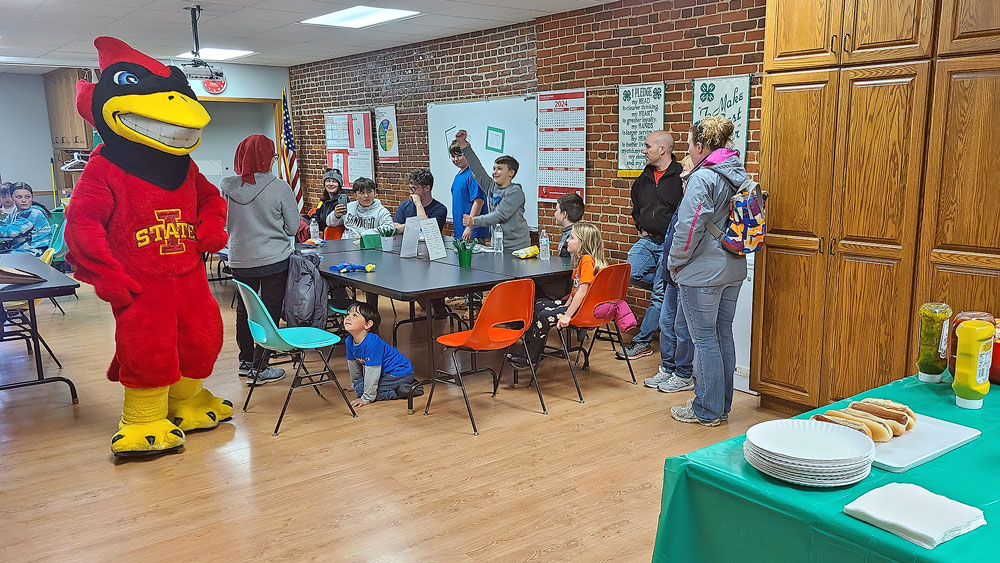Certified industrial site project advances

By Bob Steenson, bsteenson@charlescitypress.com
The goal of creating a state-certified industrial site in Charles City is moving closer to reality as the project advanced to the next step recently.
Tim Fox, executive director of the Charles City Area Development Corp., gave a project update at the monthly CCADC board meeting Wednesday afternoon.

Fox said representatives of the Iowa Economic Development Authority visited the proposed site recently, and on a “report card” of 16 items accomplished so far, the project received 12 A’s and four B’s.
The B’s were mostly in the area of utilities. The project got marked down slightly on the issues of “utility mapping, utilities and consistencies, property ownership and utility questionnaire, and no utility representative at the meeting,” Fox said.
City officials were on hand for the visit to talk about water and sewer services, but a representative from MidAmerican Energy was not available that day, he said.
The Area Development Corp. is proposing to purchase about 76 acres on the northeast corner of the intersection of South Grand Avenue and U.S. Highway 218 (the Avenue of the Saints), and has a two-year option to buy at a price of a little over $2 million, or about $28,000 per acre.
Fox has said a state-certified site tells a prospective business that the property is essentially “shovel-ready” to begin development or can be made so within six months, and is an important marketing tool.
“We received an invitation to Step 3” in the certified site process, Fox said Wednesday, and he had a long list of requirements for this next step:
- Recordable survey.
- Title opinion.
- Phase 1 environmental site assessment.
- Wetlands delineation.
- Archeological survey.
- Building pad cost and rendering.
- Detailed engineer plans and cost estimates for electrical, natural gas and telecommunications extensions.
- Covenants and restrictions.
- Site concept plan.
- Master development plan.
- Endangered species documentation.
- Geotechnical study.
Fox said the field work is already done for the archeological survey.
“We’re just awaiting the report. They found no archaeologically significant sites, which is good, he said.
Fox said he has been in contact with the companies that they would typically use for the rest of the studies and reports, including Terracon, Bear Creek Archeology, Kamm Excavating, SCH, WHKS, Veenstra and Kimm, MidAmerican Energy and Northern Natural Gas.
“I’m watching my $45,000 budget as close as I can,” he said, referring to the cost to complete the certification process.
Fox said the Area Development Corp. has until Aug. 20, 2019, to complete the next phase of certification. The wetland study won’t be able to be done until May, and that will likely be one of the last items to be completed.
One issue that came up is that the site does not have a high enough volume natural gas supply to meet the certification requirements.
“The requirement for a general industrial site is 10,000 MCF” of natural gas a month, Fox said.
One MCF is 1,000 cubic feet, so 10,000 MCF would be the availability of 10 million cubic feet of natural gas a month.
“We do not have that at the border station south of Kwik Star,” Fox said. “To get that level it’s going to cost $2,940,654, according to MidAmerican and Northern Natural Gas.”
Dean Andrews, the Charles City mayor and a member of the Area Development Corp., explained that it isn’t required to actually build that expansion, only to show that it can be built within six months if a company that needs that capacity wants to locate in the certified site.
“The certification is you’re able to follow through if they need it,” Andrews said. “You don’t have to have it in there before you become a certified site, you just have to be able to say, ‘Yeah, we can do that if you need it.’ You’re still a certified site.”
Fox said Northern Natural Gas has said it can create that capacity within six months, as long as the work doesn’t have to be done in the winter.
He said typically a business that is purchasing the site would pay for or help pay for the natural gas expansion, then get reimbursed from the utility company through revenue credits for the amount of natural gas used.
Paul Coonrod, the CCADC vice president and a senior manager at Zoetis, said any company that needs that much natural gas would probably be planning a major investment in its facilities on the site.
“It sounds like a lot of money, but it may not be if somebody’s coming in and investing $100 million,” Coonrod said.
Although the site certification process is continuing along, one question that hasn’t been resolved yet is how the CCADC will pay for the land if the certification goes through.
Eventually the purchase price is expected to be repaid through the sale of the land to a business or businesses that will build there, and through TIF (tax increment financing) revenue from property taxes paid on the site.
But a way to come up with the initial outlay of cash for the purchase has not been decided.
It has been suggested that either Charles City or Floyd County pay for the project by issuing bonds, then pay off those bonds through the sale of the property and/or the TIF revenue.
Steve Diers, the Charles City city administrator, has said that a $2 million bond sale would push the city closer to its bonded indebtedness limit than is comfortable, and he suggested that the county, with a much higher total indebtedness limit, would be able to more easily lay out the initial purchase price.
Fox said Wednesday that no official action on financing the purchase has been taken yet, because there are still steps to go in the certification process.
“Nothing has been decided on that,” he said. “We’re waiting until we don’t have any surprises in the Step 3 due diligence — the title opinion and boundary survey, wetland and geotechnical and all that.
“Because something might go wrong,” he said. “You never know.”









Social Share